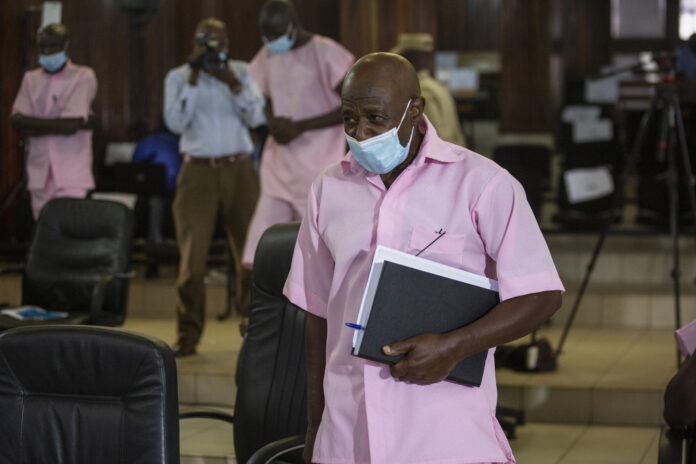
NAIROBI, Kenya (AP) — The man who inspired the film “Hotel Rwanda” and was freed by Rwanda last week from a terrorism sentence has arrived in Qatar on his way to reuniting with family in the United States.
Paul Rusesabagina is currently in Doha, White House National Security Council spokesman John Kirby told journalists on Monday.
“He will soon be making his way back to the United States. And his family is, as I’m sure no one is surprised, they’re eager to welcome him back here, home. The White House has been and remains engaged in every step of this process,” Kirby said.
The 68-year-old Rusesabagina, a U.S. legal resident and Belgian citizen who had left Rwanda after saving hundreds of countrymen in the country’s 1994 genocide, was convicted in 2021 of terrorism offenses and sentenced to 25 years in prison in a widely criticized trial.
Rusesabagina disappeared in 2020 during a visit to Dubai in the United Arab Emirates and appeared days later in Rwanda in handcuffs. His family alleged he was kidnapped. He was convicted on eight charges including membership in a terrorist group, murder and abduction.
Rusesabagina has asserted that his arrest was in response to his criticism of longtime President Paul Kagame over alleged human rights abuses. Kagame’s government has repeatedly denied targeting dissenting voices with arrests and extrajudicial killings.
In a signed letter to Kagame dated Oct. 14 and posted on the justice ministry’s website, the ailing Rusesabagina expressed regret for any violence and wrote that “if I am granted a pardon and released, I understand fully that I will spend the remainder of my days in the United States in quiet reflection. I can assure you through this letter that I hold no personal or political ambitions otherwise. I will leave questions regarding Rwandan politics behind me.”
His arrest was a source of friction with the U.S. and others at a time when Rwanda’s government has also been under pressure over tensions with neighboring Congo and Britain’s plan to deport asylum-seekers to the small east African nation.
Kirby said U.S. national security adviser Jake Sullivan personally engaged in the case, “really doing the final heavy lifting to get Paul released and to get him on his way home.”

